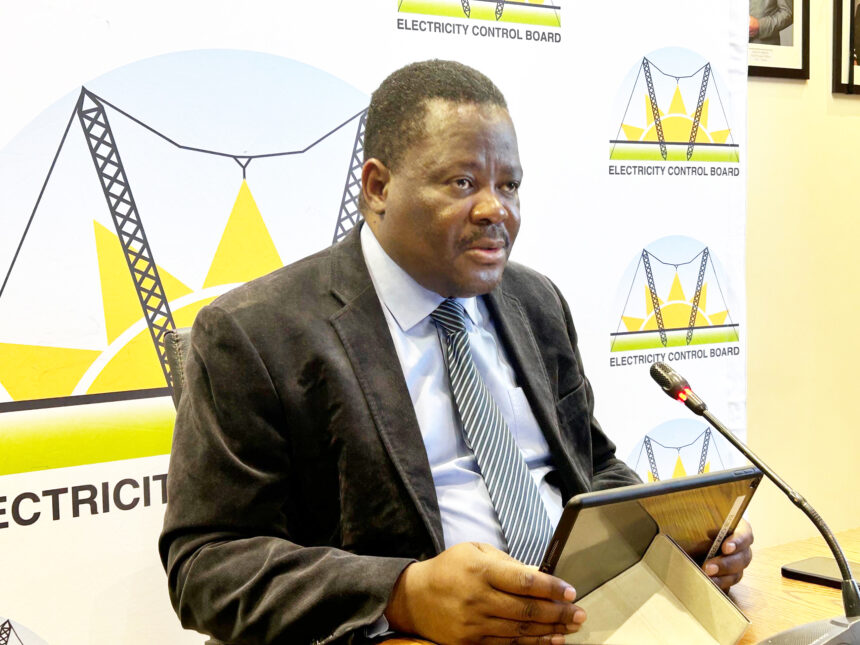Maihapa Ndjavera & Edgar Brandt
Responding to a massive public outcry on the persistent increase in electricity tariffs, government finally lent an ear and provided millions to ease the cost of living for struggling Namibians.
While this subsidisation has been welcomed, some are, however, questioning its sustainability, questioning what the long-term solution for skyrocketing living costs is.
At a last-minute media conference on Wednesday regarding the increase in electricity tariffs, Electricity Control Board CEO Robert Kahimise disclosed that government provided N$365 million to subsidise electricity.
This, he said, is to provide some breathing room to consumers.
Approximately N$221 million of the N$365 million has already been set aside to assist NamPower to execute its mandate and ensure uninterrupted security of electricity supply.
The remaining N$144 million will be utilised by the distribution utilities to lessen the impact of the electricity tariff on their customers for the said period.
Last week, the ECB announced an 8% increase to the 2024/2025 NamPower bulk electricity tariff.
This would have been applicable to NamPower bulk customers, such as regional electricity distributors (REDs), local authorities, regional councils, mines and large industries.
This new tariff was to become effective on 1 July 2024. However, following an uproar from the nation already reeling from years of recession that had been exacerbated by Covid-19, mines minister Tom Alweendo engaged ECB to collectively interrogate the matter. This resulted in government resolving to provide approximately N$365 million to subsidise electricity consumers for the 2024/25. Kahimise noted that consumers will now pay the same tariffs as per the schedule of approved tariffs for 2023/24.
ECB will allow licensees to deviate from the approved 2024/25 approved schedule.
“As such, the public is hereby informed that the ECB will engage the licensees on the modalities for recovering their approved revenue requirements for the 2024/25 financial year,” said Kahimise.
He added that there is a substantial shortage of energy in southern African at this stage – and this situation will prevail over the next several years until enough new generation and transmission capacity has been added.“The drought situations in countries like Zambia and Zimbabwe, where Namibia imports her power from, makes it necessary that NamPower has sufficient funds to procure power from alternatives when necessary to ensure security of supply,” the ECB CEO added. Commenting on the millions in subsidisation, local economist Klaus Schade advised it is imperative to support electricity-efficient technologies.
“Subsidising electricity prices could disincentivise investment into more efficient technology, and disincentivise electricity saving,” Schade.
Another economic analyst stated: “It is election year. The ruling party has failed on its social contract with its populace – and this move would have killed them even further. They will either delay this, or fund it from other sources”.
From a consumer perspective, a Windhoek resident stated: “I am grateful for the government subsidies for now, but I cannot help but worry about the future. What is the long-term plan in capping these exorbitant increases?”.
Nuclear power
Yet, despite abundant uranium resources, Namibia still stubbornly neglects its own uranium resource blessings to remain a net electricity importer, and thereby continues to rely heavily on purchasing power from the region.
At Wednesday’s media briefing, ECB executive for technical regulation Petrus Johannes said due to Namibia’s total population, having a power plant does not make economic sense, and would instead put more pressure on end-consumers.
“Because of our size, our demand is merely 750MW. For a nuclear plant to be feasible, you must go at least 1 gig and above. Uranium was considered – but because of cost implication that will be passed to the end consumer, it is not considered now in the energy mix,” Johannes rationalised.
The World Nuclear Association (WNA) earlier told this publication that just one small nuclear reactor could produce around 186% of Namibia’s electricity demands, whilst two reactors would provide 372% of the country’s electricity demands.
According to the mines and energy ministry, the reasons Namibia does not use its own uranium resources boils down to economic, technological, regulatory, environmental and financial reasons, coupled with a lack of general demand in the region.



